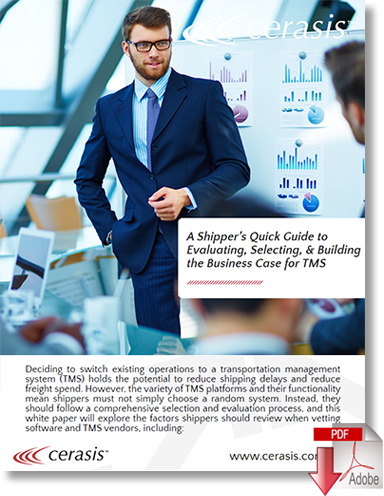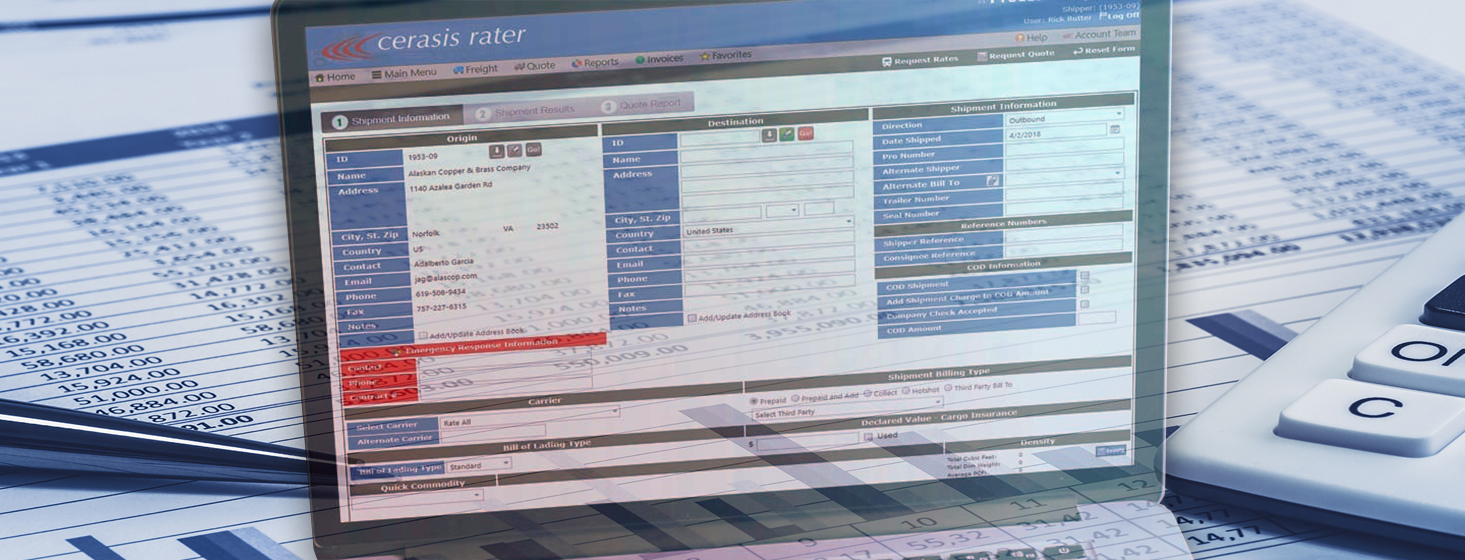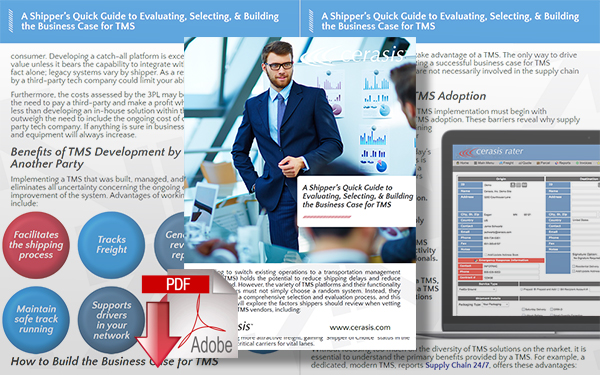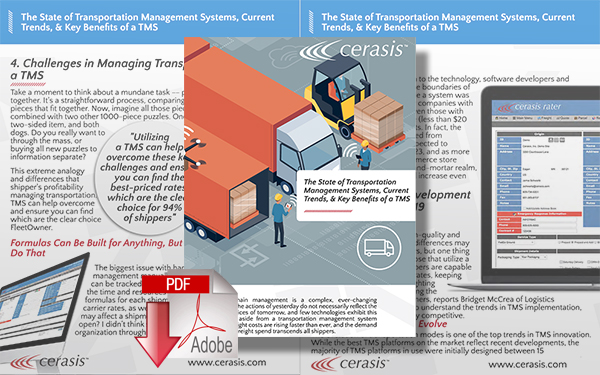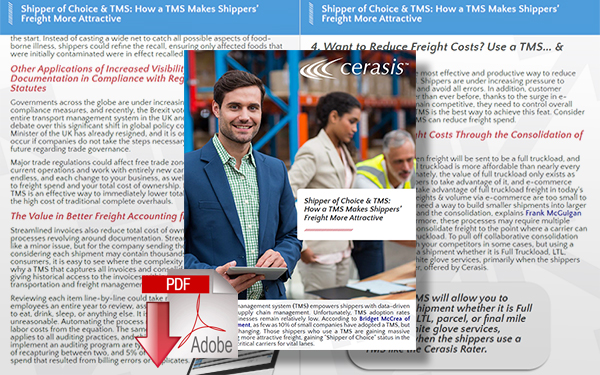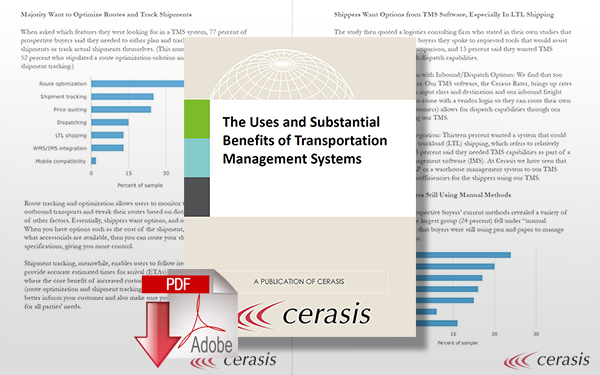Asking the Right Questions When Evaluating Today’s TMS Transportation Management Systems
Before purchasing a transportation management system, use your TMS selection criteria to guide a question-and-answer session with the vendor, and while these questions can be as broad or detailed as you’d like, it is imperative to include these top three questions first.

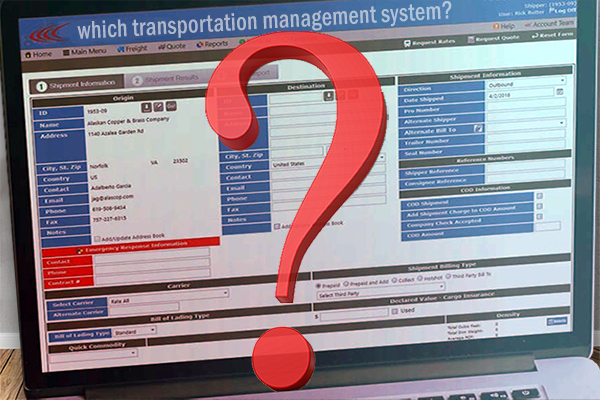
Transportation Management System Selection Criteria: Questions to Ask Upon Evaluation of a TMS
Investing in a transportation management system (TMS) is one of the best ways for shippers to improve logistics management and reduce freight costs.
While a TMS might have been a game-changer in the past, it is essential for shippers that wish to stay competitive and attract customers.
Everyone offers fast, free shipping for qualified purchases, and failure to use a TMS will only result in higher overhead costs.
Meanwhile, choosing a transportation management system is not as simple as it sounds.
The evaluation period is where your TMS selection criteria will be most important, helping you weed out sub-par systems and select one that genuinely optimizes its value.
Asking the right questions as part of the process will further increase your potential ROI and reduce risk.
Read: The Current State of Transportation Management Systems
Before You Even Think of Questions to Ask, Know What You Want and Need
Every TMS vendor on the market works their leads to gain the most customers.
Unfortunately, not all vendors and TMS platforms are created equal.
They share standard functions, such as increased visibility into freight spend and one-touch freight tendering.
Yet, others add to their value through analytics, real-time data, and more.
Depending on the vendor, you may also be able to integrate freight claims’ management processes, multi-modal shipments, and after-hours freight pickup scheduling.
Furthermore, the ability to use cloud-computing has given rise to new TMS vendors and startups that offer the “end-all solution” to comprehensive transportation management.
So, the best way to ensure you do not fall victim to the marketing trap set by novice or poor-performing platforms is to know what you need and want from the system.
In particular, pay attention to the additional features and their ease-of-use. They may add to total investment costs, but their ROI can be much higher.
Setting the Basis for TMS Selection Criteria Should Include:
- Recognizing your current system limits and long-term TMS goals
- Defining the minimum requirements for systems
- Building a business case that adapts to vendor-specific programs
- Participating in a demo to understand how to use the system
- Validating system functions and vendor rapport
What Are the Top 3 Questions to Ask Before Selection?
Before purchasing a system, use your TMS selection criteria to guide a question-and-answer session with the vendor. These questions can be as broad or detailed as you’d like. However, it is imperative to include these top three questions first:
1. How Long and How Much Will Upgrades Take and Cost?
Every system will eventually become obsolete. That is unless the vendor performs regular maintenance and updates to the software to ensure you have access to the latest technologies and functions. Regardless of whether upgrades are conducted manually or automatically, shippers should also review the downtime requirements for updates, if applicable, and their costs. The best-in-class systems utilize cloud technology to push upgrades during off-hours, driving the downtime required to near-zero.
2. What Is the Level of Customer Support?
Another critical factor in choosing a TMS is the level of support it includes. Customer support is vital. Eventually, you will encounter an issue that cannot be resolved in-house, and an expert customer support agent will be necessary. Depending on the scale of your operation, know whether you can handle a short, long or days-long delay due to waiting for a response. Moreover, IVRs automate many concerns, but shippers should choose a vendor with available real-person customer support, not an automated system, which is the only way to guarantee you can get the answers you need regardless of whether the system recognizes your voice.
3. How Intuitive Is the System?
Intuitive systems require less training and ensure all functions are executed to meet freight shipping needs and avoid unnecessary expenses. Choosing a less-savvy TMS platform might save some money, but even a few minutes spent tendering an order can amount to millions in lost revenue over the course of a year.
Don’t Waste Time Asking About Standard Features, Review the System Functions First
There are always going to be questions relating to the use of mobile technology. Face it; most vendors offer a mobile-optimized experience. Instead, inquire about what sets the experience apart from their competitor’s platforms. Also, review the system functions early in the process to ensure you are not losing time asking questions that may have already been answered in onboarding documents or other materials.
Implement the Right System for Your Needs by Relying on Your TMS Selection Criteria Throughout the Entire Process
Before your organization invests in a system to get TMS results, it is essential to carefully review your chosen vendor and determine whether you wish to proceed. Even in the late stage of the process, you may be able to re-evaluate your needs and chose a different software or vendor. However, each vendor follows policies regarding contracts and buyer’s remorse differently, so check with your vendor first.
Looking for a Transportation Management System? Check-out Cerasis Rater TMS.
Related Article: TMS Study Shows 25% of Shippers Still Using Manual Methods, Need Route Optimization
Related Transportation Management White Papers
Shipper’s Guide to Evaluating, Selecting, & Building the Business Case for TMS New!
This white paper explores the important factors shippers should review when vetting software and transportation management system vendors, this is a must-read for shippers looking to implement a TMS to better manage freight. Download Now!
The State of Transportation Management Systems, Current Trends, & Key Benefits of a TMS
In this white paper, you will learn about; what a transportation management system is and what it can do for shippers, the current state of transportation management system in use, and the future state of the TMS market. Download Now!
How a TMS Makes Shippers’ Freight More Attractive
This is a must-read paper for shippers who are wanting to make sure they are working collaboratively with carriers to gain and maintain “Shipper of Choice” status by following not only best practices but optimizing those sound processes with the use of a TMS. Download Now!
The Uses and Substantial Benefits of Transportation Management Systems
In this e-book, we explore the current state of and demands in the landscape of the TMS world, the uses, and functions of a TMS, including a section on the TMS study by Software Advice. Download Now!
More Resources from Cerasis

Article Topics
Latest in Materials Handling
Manufacturing output falls again in June, reports ISM Study: Warehouse software market valued at $7.2 billion in 2023 GXO signs multi-year agreement for use of humanoid robots from Agility Robotics Doosan Robotics partners with Rocketfarm on palletizing solutions MIT Center for Transportation & Logistics launches new lab supported by Mecalux to research the potential of AI in logistics 2024 Automation/Retail Special Issue 2024 Intralogistics Robotics Research Report More Materials HandlingSubscribe to Materials Handling Magazine

Find out what the world's most innovative companies are doing to improve productivity in their plants and distribution centers.
Start your FREE subscription today.
June 2024 Modern Materials Handling

Latest Resources


